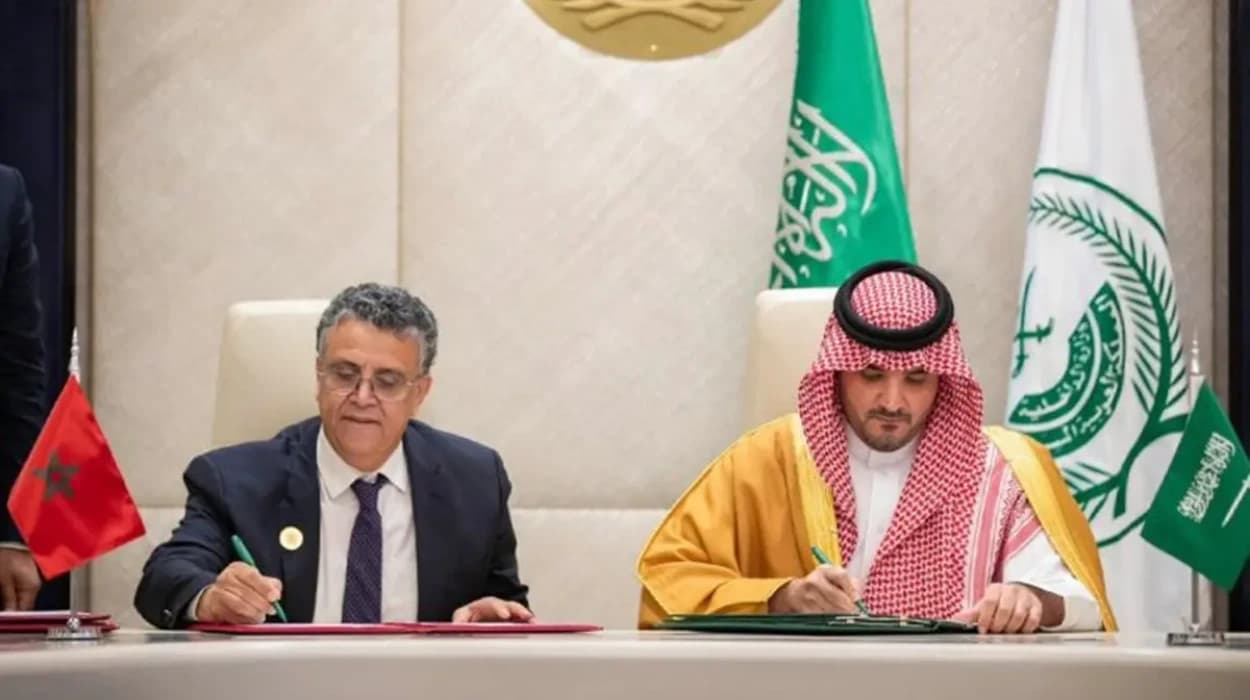Saudi Arabia and Morocco have signed a significant agreement
to encourage and protect mutual investments, strengthening economic cooperation
and safeguarding investor rights. Meanwhile, Egypt has called on the global
community to transform mental health commitments into concrete national
actions, emphasising regional partnerships at the Sixth Global Ministerial
Mental Health Summit held in Doha.
Saudi Arabia and Morocco Strengthen Investment Ties
Saudi Arabia and Morocco have formalised a pact aimed at
encouraging and protecting mutual investments between the two nations,
underpinning deeper economic cooperation. The agreement was signed in Rabat by
Saudi Investment Minister Khalid Al-Falih and Moroccan Minister of Economy and
Finance Nadia Fettah Alaoui during the official visit of the Saudi minister to
Morocco, as reported by Omar Al-Saleh of Arab News.
The pact focuses on creating a stable and transparent
environment for investors, guaranteeing fair and equitable treatment, freedom
to transfer funds, and protection against expropriation without fair
compensation. It also allows investors to seek international arbitration in the
event of disputes, ensuring investor confidence on both sides.
Saudi Arabia and Morocco already enjoy growing economic
relations, with bilateral trade reaching 5 billion Saudi Riyals (approximately
$1.33 billion) in 2024. Saudi exports to Morocco were valued at 4.3 billion
Riyals, while imports from Morocco stood at 640 million Riyals.
In a statement on its official X account, the Saudi Ministry of Investment asserted that the ministers signed
“an agreement to encourage and protect mutual investments between the two Kingdoms, to strengthen the economic partnership between them, safeguard investors’ rights, and support the flow of investments in various sectors.”
Discussions between the ministers also covered enhancing
financial partnerships, economic policies, stimulating growth, and financing
major developmental projects that could benefit both nations.
Broader Economic Cooperation and Strategic Sectors
Beyond the investment protection agreement, Saudi Arabia and
Morocco are pursuing broader cooperation in key industrial areas, noted by
Layla Benbrahim in Al Majalla. The focus areas include phosphates, renewable
energy, electric cars, and their batteries. These sectors align with Saudi
Arabia’s Vision 2030, which aims to diversify the Kingdom’s economy away from
oil dependence, and Morocco’s New Development Model, which seeks to double industrial
exports.
Notably, cooperation in the automotive sector is a priority.
Saudi Arabia intends to become a leading manufacturer and exporter of electric
vehicles (EVs) by 2030, aiming to produce 500,000 EVs annually by decade-end.
The Saudi EV brand Ceer, unveiled by Crown Prince Mohammed bin Salman in 2022,
is underpinned by a manufacturing facility under construction in Jeddah’s King
Abdullah Economic City, slated to be the largest auto industrial facility in
the Middle East.
The two countries also look to establish a permanent
maritime link between the ports of Jeddah and Tangier to facilitate smoother
trade integration and joint industrial projects, according to the Moroccan
Ministry of Economy and Finance. Studies to identify potential joint ventures
leveraging technology, research, and expertise are planned.
Egypt Urges Global Mental Health Action and Regional Partnership Boost at Doha Summit
In parallel international developments, Egypt underscored
the urgency of translating global mental health commitments into actionable
national policies during the Sixth Global Ministerial Mental Health Summit held
in Doha, Qatar. Khaled Abdel Ghaffar, Egypt’s Minister of Health and Population
and Deputy Prime Minister for Human Development, delivered this call in his
opening session remarks, as reported by Amina Hassan of Daily News Egypt.
Abdel Ghaffar described the recent UN General Assembly
high-level meeting on non-communicable diseases (NCDs) and mental health as a
“turning point,” recognising mental health explicitly within the NCD agenda for
the first time. He emphasised the importance of a “whole-of-government and
whole-of-society” approach that extends beyond healthcare to sectors like
education, employment, finance, technology, and social protection.
The Egyptian minister highlighted the need for health
systems to be reshaped to become more equitable and people-centred, with
strengthened primary care, expanded community-based services, and a focus on
prevention and early intervention—especially for vulnerable groups such as
children and young people.
Egypt showcased its progress in integrating mental health
into primary care, deploying digital tools like hotlines and telemedicine, and
using AI-based applications for early diagnosis. School and university initiatives
combating stigma and promoting mental well-being among youth were also
underlined.
Egypt’s role as host of the Africa Centres for Disease
Control and Prevention’s (Africa CDC) North Africa Coordination Centre was
highlighted, reinforcing its commitment to advancing both continental and
global collaborations on NCDs and mental health, according to Hossam Abdel
Ghaffar, spokesperson for Egypt’s Ministry of Health and Population, in
statements covered by the State Information Service of Egypt.
Global Summit and Regional Collaboration Insights
The summit, held under the theme “From Global Commitment to
National Action,” gathered officials, experts, and decision-makers worldwide to
discuss strategic approaches for improving mental health services globally.
Discussions stressed mental health as a pillar of public health and sustainable
development.
The summit’s political declaration calls for multisectoral
coordination involving education systems, employment policies, financial
frameworks, technology deployment, and social protection schemes to foster mental health and well-being.
Egypt’s active participation at the summit echoes its dedication to advancing mental health care while exchanging international expertise to boost the quality of services available to its citizens.
